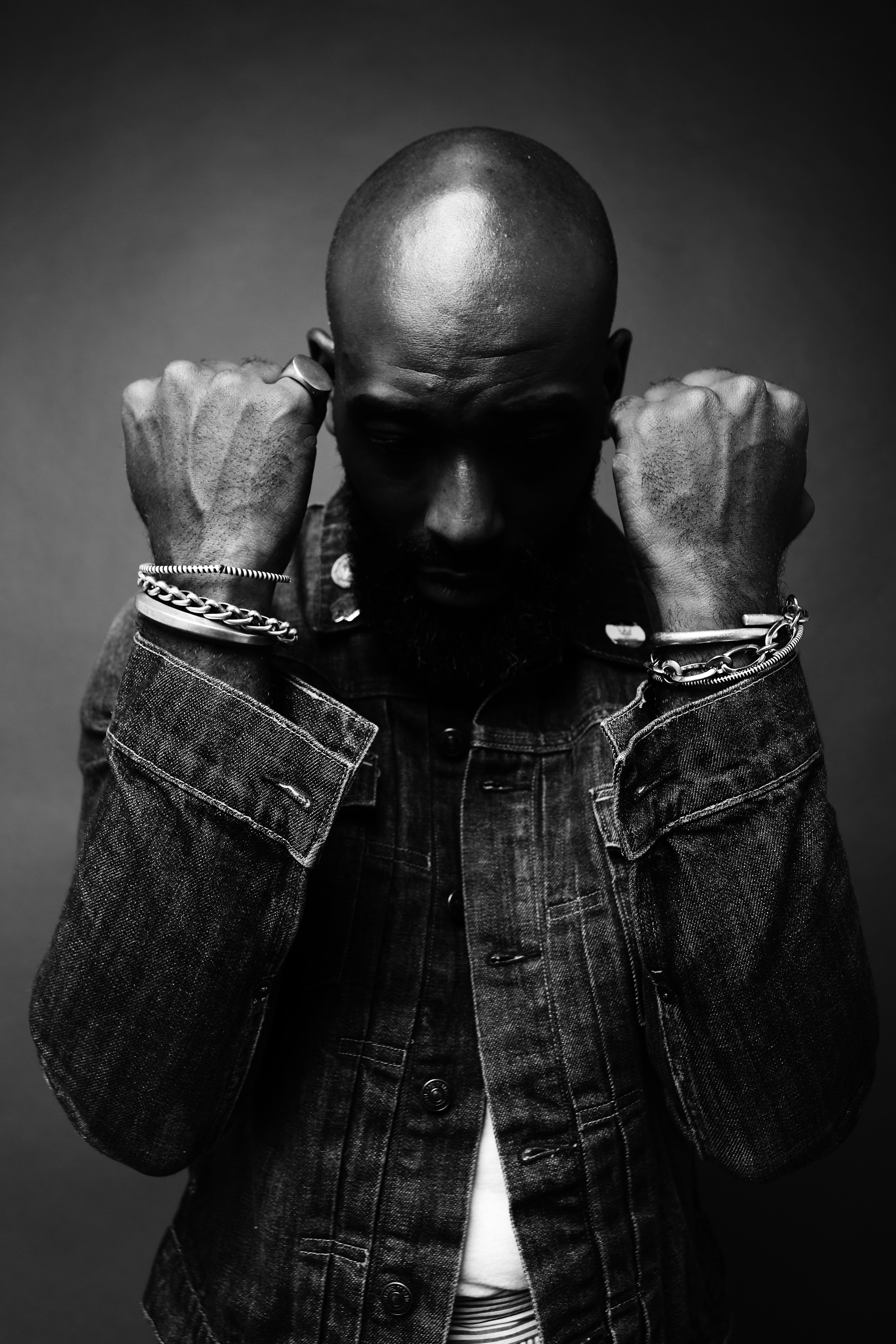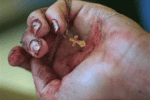For whoso findeth me findeth life, and shall obtain favour of the Lord.
But he that sinneth against me wrongeth his own soul: all they that hate me love death. Proverbs 8:35-36
There is a way which seemeth right unto a man, but the end thereof are the ways of death. Proverbs 14:12 (also Proverbs 16:25)
Righteousness exalteth a nation: but sin is a reproach to any people. Proverbs 14:34
Professing themselves to be wise, they became fools,...
...And even as they did not like to retain God in their knowledge, God gave them over to a reprobate mind, to do those things which are not convenient; Romans 1:22,28
Surely some future historian, surveying our times, will note sardonically that it took no more than three decades to transform a war crime into an act of compassion, thereby enabling the victors in the war against Nazism to mount their own humane holocaust, which in its range and in the number of its victims, may soon far surpass the Nazi one. It is significant that, whereas the Nazi holocaust has received lavish TV and film coverage, the humane one goes rolling along largely unnoticed by the media. Malcolm Muggeridge, Sanctity of Life, Chatelaine, December 1979, p. 138
It's so comforting to know that life-and-death decisions are in the hands of "experts." First, the good news story, as reported in the London Daily Telegraph, July 26, 2012:
Adam Cheshire was just a day old when he stopped breathing and started suffering violent seizures due to a brain infection.Now the bad news story, as reported by Martin Beckford in the Daily Telegraph, July 31, 2012:
He slipped into a coma and was placed on a life support machine while doctors battled to save him.
Parents Charlotte and Chris Cheshire from Telford, Shropshire, were told to say their goodbyes and to take a final photograph of their son.
Yet, Adam astounded medics when he started showing signs of life after a cuddle from his mother.
The 16-month-old boy's recovery has been described as a 'miracle' and now Adam has taken his first steps.
Mrs Cheshire, 34, said: "They were convinced he was going to die.
"His entire body started to shut down. He was blue and shaking with convulsions.
"For a number of days, I was only allowed to gently stroke Adam's leg or arm before they encouraged me to hold and cuddle him.
"They told me skin-to-skin contact is very important. Your baby needs to know you are there.
"Adam is our miracle. He just refused to give up."
Adam was born at the Royal Shrewsbury Hospital in Shropshire, weighing a healthy 7lb 3oz.
But the next day, Mrs Cheshire, noticed he was making a strange grunting noise and wouldn't feed.
Midwives immediately realised something was wrong and took Adam away for tests...
...His organs began to shut down and he was having constant seizures.
Doctors put Adam on a ventilator to breathe for him and kept him an induced coma.
The couple's health visitor was also put on stand-by to deal with bereaved parents...
...Three days later, Adam was diagnosed with Group B Strep Meningitis.
Pregnant women can transmit the disease to their newborns at birth.
Babies who survive can be left with speech, hearing, and vision problems as well as being permanently disabled.
Mrs Cheshire said: "A doctor came to see me to explain that while Adam was still alive and that they would do their best to treat him, that his life was very much in danger...
...Over the next week, his parents could only watch while their son fought for life.
They were warned that even if Adam lived, he could be brain damaged, epileptic, suffer cerebral palsy and a range of other disabilities.
But he refused to give up.
His breathing slowly improved and a few days later, doctors were able to take him off the ventilator.
On Mothering Sunday, Mrs Cheshire was finally able to hold her son for the first time since he had been ill and Adam opened his eyes for the first time.
Over the next few days, she spent up to twelve hours a day sitting in a rocking chair while Adam slept in her arms.
After being fed tiny amounts of milk through a tube for the first few weeks of his life, Adam began to breastfeed.
Skin-to-skin contact, also known as the 'kangaroo care' technique after the way kangaroos hold their young in a pouch next to their bodies, means the mother acts as a human incubator to keep babies warm, stimulated and fed.
Mrs Cheshire said: "It was incredibly traumatic to be separated from Adam. It felt fabulous to hold him in my arms.
"The moment he opened his eyes was incredible. I knew that if he was waking up, he would survive.
"In tiny, baby steps, Adam began to grow stronger.
"His seizures reduced and then stopped. His first MRI came back with some small spots of brightness which appeared to indicate brain damage, but it was too early to tell."
However, after three weeks in hospital, Adam, who has a hearing impairment, was well enough to go home to be with his parents and step-brother, George, ten.
A more recent MRI scan showed most of the brightness that indicated brain injury had disappeared.
Mrs Cheshire said: "It's been a continuing journey. We are so proud of him.
"Adam recently took his first steps unaided. It's another tick of the check list. Everything he does is incredibly amazing.
"We cannot fault the care we received at the hospital and the support we have been given. We would like to thank them all from the bottom of our hearts."
The couple are now backing the Group B Strep Support's petition asking for routine group B Streptococcus testing for pregnant women on the NHS.
Mrs Cheshire said: "Group B Strep is very common in the UK as one in four women in the UK are carriers. It can be quickly and easily detected with a swab test between 35-37 weeks of pregnancy..."
...For more information, contact Group B Step Support on 01444 416 176 or sign the petition at www.gbss.org.uk/epetition
A judge has ruled that a severely brain-damaged baby boy can be allowed to die even though his devoutly religious parents wanted him to be kept on a life-support system.
Mr Justice Hedley said the one-year-old was comatose after a “catastrophic accident” and it was “unrealistic” to think his condition would ever improve.
He acknowledged that the baby’s mother and father believed “where there’s life there’s hope” and that their faith compelled them to resist switching off their son’s ventilator.
But while praising the parents’ dignity and moving evidence, the judge went on to say that the preservation of life by medics “cannot be everything”.
“No understanding of life is complete unless it has in it a place for death which comes to each and every human with unfailing inevitability. There is unsurprisingly deep in the human psyche a yearning that, when the end comes, it does so as a 'good death'.
“It is often easier to say what that is not rather than what it is but in this case the contrast is between a death in the arms and presence of parents and a death wired up to machinery and so isolated from all human contact in the course of futile treatment.”
Mr Justice Hedley concluded, having “pondered long and anxiously over this matter all too aware of the gravity of any such decision”, that it was in the baby’s best interests that he could be removed from supported breathing and instead given palliative care.
“My last words must be of profound sympathy to [the parents], whose loss and sorrow can I think only be grasped by those who also have passed through the valley of the shadow of death with their own children.”
In most cases where patients are not expected to recover from brain injuries or disabilities, relatives agree with doctors that life support can be switched off.
But when loved ones disagree, judges can be called upon to decide whether or not their wishes should override those of NHS trusts.
In one High Court case three years ago, the father of a severely disabled baby wanted everything possible done to keep his son alive while his estranged partner supported medics’ view that he had no quality of life. After six days of evidence, the father changed his mind and the baby was allowed to die peacefully.
But in another case, from 2006, a judge ruled that a terminally ill 18-month-old still derived some pleasure from being cared for by his family, and was given the right to be kept alive.
The latest “tragic and difficult” case, decided in the High Court this week, involved the first and only child of a married couple who was born healthy in 2011 but in May suffered a “catastrophic accident” leaving him with irreversible and profound brain damage.
“No suggestion has ever been made that either parent was culpable (whatever the mother in particular may feel) and it is quite clear to me that this was nothing more nor less than a wholly unforeseeable disaster,” the judge said.
The baby, referred to only as X in the judgment, was given “exemplary care” at a children’s hospital, where he is being ventilated as he cannot breathe independently, but staff came to the view that his treatment had become “futile”.
His parents said their son should be given “every chance to improve” and they believed they had seen some signs of hope, while the “tenets of their faith” prevent them giving their consent to life support being withdrawn.
But Mr Justice Hedley quoted a consultant who said the baby “lacks awareness of his surroundings”, “remains comatose”, “shows no interaction or recognition to his parents or carers’ voice” and “doesn’t even shed tears or attempt to smile”.
“In my opinion Baby X no longer has the human instinct and desire to survive,” the doctor said.
The judge said that although the parents had the “instinctive yearning” to keep their son alive, the medical evidence was correct and there was no sign of improvement in his condition.
Following his ruling, the baby's doctors can decide when to withdraw ventilation.






































No comments:
Post a Comment